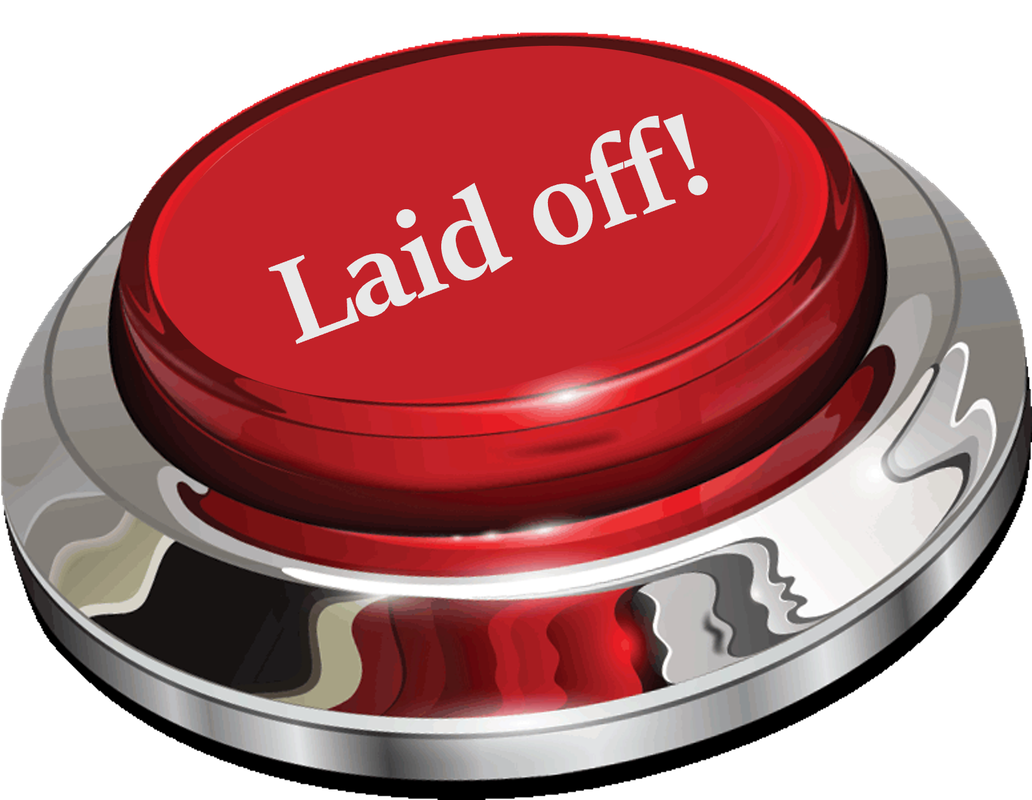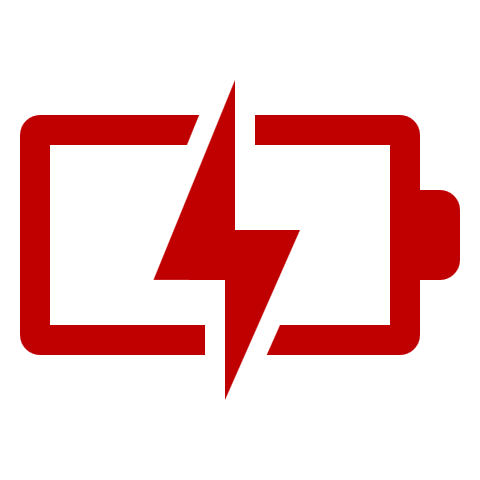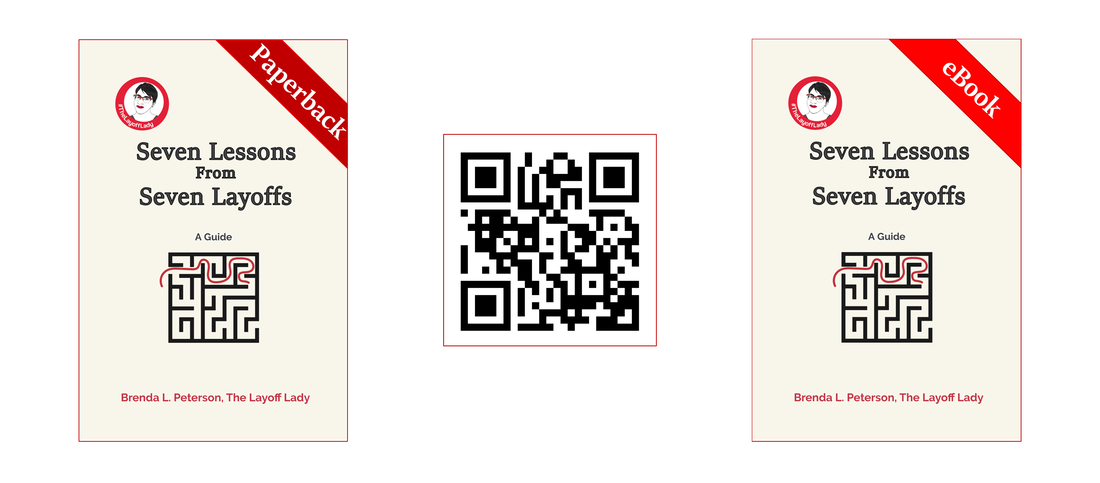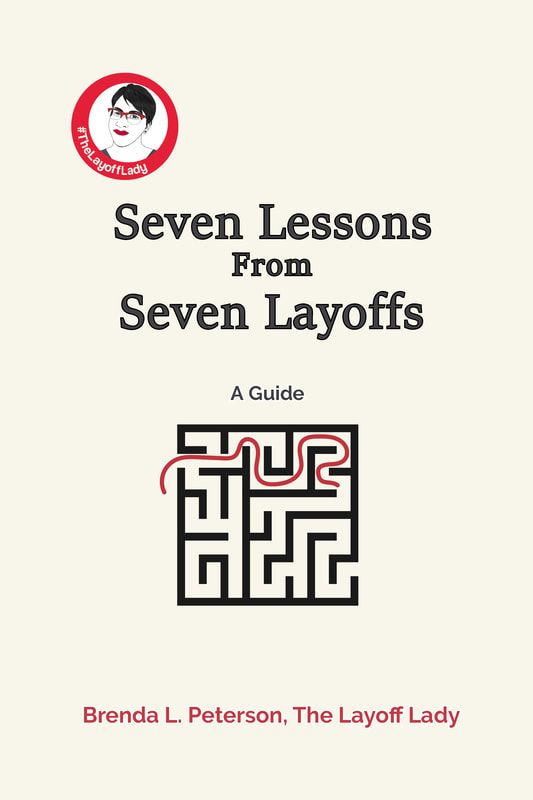|
By Brenda L. Peterson, The Layoff Lady About The Seven Layoff LessonsThrough my seven layoffs and many conversations with others in post-layoff career transition, I have learned seven core lessons:
About Layoff Lesson Six: Examine Your Energy to Take Control of Your TimeEven when you have a general idea of what needs to happen, sometimes it’s hard to translate higher-level information into specific activities. Sometimes, even when you have a clear sense of your goals and a well-written to-do list, another obstacle remains. Even when you know what your top priorities should be and how urgent those tasks are, you still can't manage to get those crucial things done. How is that even possible? In short, it all comes down to our energy. When life is puttering along as planned, we don’t have to spend undue effort living our everyday lives. Post-layoff, a lot changes. Losing your job upends your life and gives you a whole new set of challenges you simply have to figure out. These problems also come with uncertainty about the future, new complexities in your financial life, and anxiety about how long it might take to get back to something that could be called normal. You are now entering an unplanned phase in your life where you will experience more rejection in a shorter period of time than ever before. All of this change and rejection can take its toll. Managing Your MindsetBe sure to leverage your Realistic Optimist mindset by reminding yourself that good things are coming—as long as you put the work in to get there. While you can accomplish a lot, you’ll never be able to do absolutely everything that may contribute to your success. Instead of setting unrealistic expectations for your ongoing productivity, you need to prioritize where you spend your energy and your time. Leading and Lagging IndicatorsWhen pursuing a big goal, it's important to focus on taking the small steps that will help you achieve your larger goal. Many times, we think of the end goal--for example, an accepted job offer is one of the ultimate measures of job search success. Having a new job is a lagging indicator. That means that it is a big goal that won’t happen for a while and has many contributing factors. Too often, people overfocus on achieving a big goal (lose 50 pounds, write a book, run a marathon) but skip over the smaller steps that build toward that huge goal. This is where leading indicators come in. Leading indicators are all of the tasks you need to complete to position yourself to achieve that bigger goal. Leading indicators are those smaller, checkoffable things you can control. For job searching, those might be applying for three jobs a week, sending LinkedIn connection requests for two people per week, and sending thank you notes after an interview. Consistently doing those leading indicators will help you achieve those lagging indicators. All Hours Are Not Equally ProductiveWhen I’m in career transition, I spend a lot of time writing, applying for jobs, and interacting on LinkedIn. I also tend to rewatch TV shows and movies. Conventional time management would say that I’m wasting a good chunk of my life. In reality, it is not feasible to produce noteworthy results all the time. Achieving at a high level requires preparation and adequate recovery time. That means if I have two video interviews in one day, I will appear to be doing nothing for those couple of hours right afterward. The only way I can knock those interviews out of the park is by managing my energy well. Reflect on Factors Influencing Your EnergyAs you think about how to spend your time, learn about yourself and when you will be the most productive and happiest with each activity. I interact with LinkedIn posts during my first cup of coffee, enjoy afternoon walks, and do yoga at night before bed. There are no absolute right or wrong times for most things, just ones that are a better fit for you. Take time to reflect on your most and least productive times of day. Do you excel in the morning, or do your best work late at night? How much structured time do you need? How much social time do you need? These answers will help you gain a sense of how to get the most out of each day. Energy Builders and PrioritizationPlain and simple, there is not enough time to do everything you could possibly do. Therefore, it’s crucial to prioritize your time. This helps ensure you are doing the highest value activities that get you closer to your goal. Know that saying yes to higher-value activities--like having a job interview or meeting with colleagues--means you’ll have to say no to other activities. If socializing drains you, you may skip a social gathering and rest to recover and prepare for other job-searching tasks. Also remember that energy builders, like resting, walking outdoors, or medication, can help you sustain the energy levels needed to work toward your goal for as long as it takes. For The Whole StoryFor all the information on each of the seven lessons, pick up a copy of my book Seven Lessons From Seven Layoffs: A Guide. Learn More
0 Comments
By Brenda L. Peterson, The Layoff Lady My Year In ReviewFor me, the past year has been very full. For the first six months, I was in career transition, a volunteer facilitator for The White Box Club, and writing my book Seven Lessons From Seven Layoffs: A Guide. Then, I started a new job, and everything changed. I spent the next six months learning my new role, adjusting my finances back to my working person budget, and focused on finalizing and publishing my book. Priorities, Plans, and GoalsI have a love/hate relationship with setting personal goals. Instead, I feel like I have a general direction in life and continue to modify and hone that direction as needed. I may change where I focus when I stumble upon a new interest, when an opportunity unexpectedly presents itself, when a once murky path becomes clear, or when life hands me a beginning or end. Sometimes, it’s as easy as the start of a new week, year, or season to motivate me to reflect. Creating The New NormalThis time, I’m taking a step back to revisit goals a little differently. Just a few short months ago, I was acclimating to my new job, working on paying off a few bigger ticket items, adjusting to my new adult ADHD diagnosis, and making the bijilion little required decisions to get my book over the publishing finish line. Now, with many of those items crossed off of my life to-do list and coming off of an amazing visit from my daughter, it feels like the right time to reassess and consciously decide what to focus on next. My Reflection PlanHere is my plan for doing a bit of structured soul-searching as I contemplate my way forward:
What Do You Think?What prompts you to revisit your priorities? What is your process for refection and goal setting? Share your thoughts in the comments. Learn More
By Brenda L. Peterson, The Layoff Lady Energy Management Trumps Time ManagementWhen we think of productivity, many people think of checking off all the things on your to-do list. If only it was that simple! When going through a trying time, you're managing a lot more than just job searching. You're also juggling a whole lot of uncertainty, many significant life changes, and a steady stream of rejection. Managing your energy levels, not just your ever-growing task list is the key to making progress. Reflect on Factors Influenging Your Energy LevelsAs you think about how to spend your time, learn about yourself and when you will be the most productive and happiest with each activity. I interact with LinkedIn posts during my first cup of coffee, enjoy afternoon walks, and do yoga at night before bed. There are no absolute right or wrong times for many things, just ones that are a better fit for you. Your Most and Least Productive Times of DayTake time to reflect on your most and least productive times. Use these questions as a starting point:
Remember, there are no right or wrong answers, just what is true for you. Factors Influencing Your Energy LevelsIn addition, reflect on the following factors and their impact on your energy levels:
Remember, there are no right or wrong answers, just what is true for you. Patterns for Energy Builders and Energy DepletersBased on your responses to those questions, you may have identified factors that energize you and those that deplete you.
Knowing these things about myself helps me know how to structure my time to maximize my energy. Letting family and friends know what I need also helps them to understand and support me as I work towards my goals. Self Care Builds EnergyAfter you identify your energy depleters, here are a few steps you can take to build your energy:
Leverage Your Energy To Achieve MoreWhen I identify my energy patterns and take steps to recover when needed, I have more capacity. I can accomplish more in less time when my energy is in a good place. Then, I can leverage my to-do lists and make real progress towards my goals. Learn More
By Brenda L. Peterson, The Layoff Lady Time Management Challenges Post-LayoffWhen life is run-of-the-mill, it’s still hard to accomplish essential tasks on your to-do list. Losing your job upends your life and gives you a whole new set of challenges. These include uncertainty about the future, new complexities in your financial life, and general worry about how long it might take for things to get back to “normal.” You are now entering a challenging phase in your life where you will experience more rejection in a shorter period of time than ever before. All these factors will inhibit your ability to progress on your goals. Some Days Are More Difficult Than OthersSome days will be amazing. Within a half hour of waking up, you receive an invitation to do a phone screen, notice another hiring manager accepted your LinkedIn connection request, and receive a message from a recruiter for a role that looks promising. Hearing good news fills you with hope and boosts your energy. Soon, you’re updating your budget, making that overdue phone call, and cleaning your whole kitchen. You use that extra burst of energy to start preparing for tomorrow’s phone screen. On that very good day, you may even check a few extra things off your to-do list. Then there will be other days. Before you’ve had your first cup of coffee, you’ll check your email and find a “we’re moving forward with other candidates” message after a “the position has been filled” followed by a “this position has been put on hold indefinitely” message. After a triple dose of rejection, the rest of the day’s planned activities may fall by the wayside. A To-Do List Is Not EnoughYou have probably been relying on the overly simplistic getting-things-done strategies people often bluster about. If your only plan for success involves hammering away, powering through, or pulling yourself up by your bootstraps, you will have problems. It’s an excellent time to remind yourself that bucking/soldiering/cowboying up is not a long-term sustainable strategy. It is a short-term fix you can use occasionally when you have no other options. Making that once-in-a-while solution your go-to move will leave you irritable, burned out, and feeling like the failure you most certainly are not. To find the right new job for you, even the best to-do list won’t ensure success all by itself. You won’t be able to push yourself beyond your limits consistently for very long. Given that many job searches last between a few weeks and several months, you will need to find a way to sustain the effort you’ll need to achieve your job search goals. All Hours Are Not Equally ProductiveWhen I’m in career transition, I spend a lot of time writing, applying for jobs, and interacting on LinkedIn. I also tend to rewatch tv shows and movies. Conventional time management would say that I’m wasting a good chunk of my life watching fictional people live theirs and that I should spend that wasted time on the higher-value items on my to-do lists. In reality, it is not feasible to produce at a high level all the time. Achieving at a high level requires preparation and adequate recovery time. That means if I have two video interviews in one day, I will appear to be doing a lot of nothing for those hours right afterward. The only way I can knock those interviews out of the park is by managing my energy well. Overall, it’s not just about tallying up those hours and having a respectable number. Instead, work with your energy levels, balance planning and doing, and align your activities with your peak productivity times. Managing Your EnergyOverall, it’s not just about tallying up those hours and having a respectable number. Instead, work with your energy levels, balance planning and doing, and align your activities with your peak productivity times. Prioritizing self care, so you have enough energy to perservere, is a great first step. Learn MoreBy Brenda L. Peterson, The Layoff Lady Job Searching: The Good DaysSome days will be amazing. Within a half hour of waking up, you receive an invitation to do a phone screen, notice another hiring manager accepted your LinkedIn connection request, and receive a message from a recruiter for a role that looks promising. Everything is going great for you. Hearing that good news fills you with hope about the future. You feel appreciated, valued, and worthwhile. Soon, you’re updating your budget, making that overdue phone call, and cleaning your whole kitchen. You use that extra burst of energy to start preparing for tomorrow’s phone screen. Today, you are productivity personified. Job Searching: The Not-So-Good DaysThen there are the other days. You check your email and read, “We will not be moving forward with your application,” then move on to “We regret to inform you,” then finish up with, “This position is no longer available.” You’re not even out of bed, and you already heard you weren’t good enough for three jobs you really wanted. Now, all that good news from the previous day seems irrelevant. Your email has become a scary place where everyone is mean. You hop onto LinkedIn to look for new jobs. While looking at job listings, you fixate on the one or two preferred qualifications you don’t have. You start to customize a resume for one job, then stare at your screen, trying to figure out why anyone would bother hiring you. Now, you're not going to have it in you to be a high achiever. Struggling to SucceedAfter a three-rejection morning, you may feel like a failure, and everything is hopeless. Despite how it feels right then, you are not lazy, a loser, or a failure. Instead, you have probably been going too hard for too long and have little to show for it yet. In addition, you have probably been relying on the overly simplistic getting-things-done strategies people often bluster about. If your only plan for success involves hammering away, powering through, or pulling yourself up by your bootstraps, you will have problems. It’s an excellent time to remind yourself that bucking/soldiering/cowboying up is not a long-term sustainable strategy. It is a short-term fix you can use occasionally when you have no other options. Making that once-in-a-while solution your go-to move will leave you irritable, burned out, and feeling like the failure you most certainly are not. Sustainability and Your Career TransitionYes, you are trying to find a job. Yes, you are trying to keep your finances in check. You also need to be able to continue to keep going sustainably so you can persevere as long as your career transition requires. You won’t be able to push yourself beyond your limits consistently for very long. Given that many job searches last between a few weeks and several months, you will need to find a way to sustain the effort you’ll need to achieve your job search goals. Your Basic Self Care Daily Task ListThere is an art to writing a helpful task list. This basic self-care list includes items that are valuable, easy to achieve, and can be checked off definitely. You can also update these lists to reflect what makes the most sense to you in your life. This is not your "I have accomplished miracles" list. Instead, this is your "I did the basic things I need to stay well so I can prioritize to keep going" list. Morning
Afternoon
Evening
Modifying The ListThis is a good starting point for a basic self-care list. If moving for 30 minutes is too much for you right now, make it 10. If making your bed helps you feel better, consider adding that to your morning list. If you do a load of laundry daily and put it away, fit that in where it makes sense. If you take your vitamins before bed, do that. Do what you need to to do make it yours. This basic self-care list will help you feel better on your hardest days. On an easier day, you'll breeze through these items with no problem and move on to conquering the world. Learn More
By Brenda L. Peterson, The Layoff Lady You Can't Do It AllDuring your job search, there are always a ton of things you could be doing. Unfortunately, there is not enough time to do everything you could possibly do. Therefore, it’s crucial to manage your time. This helps make sure you are doing the highest value activities that will get you closer to your goal of landing a new job. Let's look at a few helpful strategies. Saying NoOne of the best time management strategies is the simple act of saying no. When you’re in between paid jobs, people may go out of their way to find ways to occupy “all that free time” you have. Being raised to be a nice, pleasant human being, I have a long history of saying yes to things I shouldn’t have. While saying no can be difficult, in your role as the CEO of You, it’s your job to prioritize your time wisely to help you achieve your goals. You might want to say no to doing extra volunteer work for your child’s school, church, or favorite charitable cause. You might want to skip helping someone landscape their yard, paint their house, or move. You might want to refrain from attending an additional school play, driving an extra carpool shift, or chaperoning one more event. In short, you get to spend your time in whatever activities bring you joy and/or get you closer to finding a new job. Ensure you align your time with your goals and do not take on additional tasks out of a sense of guilt, obligation, or good old-fashion task avoidance. Creating Your ScheduleOne benefit of working for someone else (aside from, you know, the whole getting paid thing) is that it gives your life structure. When you’re in career transition, making yourself some kind of schedule is valuable. It doesn’t have to be rigid or rigorous. Having more structure is helpful when you’re struggling. Systems help because they give you some idea of what to do with yourself if and when your plans change. Even if you don’t follow your schedule to the letter, having structure around your time can help address your need for order and give you a sense of accomplishment. Blocking Off TimeIf I have a blank calendar, I have difficulty accomplishing anything because I have too little structure. Conversely, if I overschedule myself, I will be frustrated because I have too much structure. Blocking off time for dedicated activities is how I balance the two extremes. During these time blocks, which are usually 1-2 hours long (for me), I focus on the task at hand. For example, during this time, I might search for new open positions, customize my resume for a certain role, or write a few thank you messages. Making an appointment with myself helps me get things done. I also block out time for fun activities. Whether when the roller skating rink is open, when my coffee group is meeting, or an hour to walk on a nice day, blocking off time helps me prioritize activities that bring me joy. Batching WorkThere are some things that I need to do multiple times in a day or a week or similar tasks that go well together. Work batching is a way to help increase your efficiency with these types of tasks. Here are a few examples of the kind of work I batch:
Grouping tasks tends to improve efficiency and boost productivity. Setting a TimerMost people’s productivity decreases the longer they work on the same task. One way to use your time more consciously is by using a timer. For example, I set a timer for 50 minutes, then take a 10-minute break. This way, I have a set time to focus, but I also know it won’t last forever. In addition, if I’m spinning on a task and not accomplishing anything, taking that 10-minute break usually gets me out of that thought trap. During the 10-minute break, I switch gears. I stand up, stretch, or take a few deep breaths. Sometimes, I’ll even do a quick beta task, like folding towels, before returning to my alpha work. When my timer goes off and my break ends, I begin again. Breaks can work wonders to stop you from spiraling by helping you re-engage with a given task. Learn More
|

Just get laid off?
Click here for info on what to do first. Author7-time layoff survivor Brenda L. Peterson, The Layoff Lady, waxes poetic on layoffs, job transitions, & career resilience. Buy The Book!Were you recently laid off from your job and need a roadmap for what's next? Pick up a copy of my book, Seven Lessons From Seven Layoffs: A Guide!
Categories
All
Archives
July 2024
|















